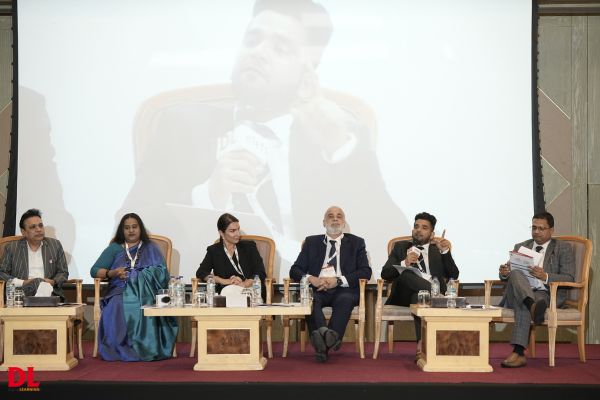
The rapidly evolving job market demands a new approach to education that prepares students for the challenges and opportunities of the future. The panel discussion on “Future-Ready: Preparing Today’s Learners for Tomorrow’s Workforce & Skills” at the World Education Summit in Dubai aims to shed light on the essential skills and competencies needed for success in the workforce of tomorrow. Edited excerpts:
Prof. (Dr.) Tabrez Ahmad, Founder and President, Technolex & Former Vice Chancellor, GD Goenka University, Gurugram, India shared, “During the pandemic, many universities and colleges suffered due to their lack of readiness for online education and the use of technology. Only 30% of colleges were fully prepared and experienced in handling online systems and online journals. As a result, 70% of colleges suffered losses for two years, and both students and faculty had to adapt to the new ways of learning. Looking ahead to the future of education, there will be Education 5.0 and Industry 5.0 by 2050. This means that changes in curriculum, pedagogy, and infrastructure are necessary, as well as training for faculty to ensure they are fully prepared for the future. The focus on physical campuses will become less relevant, and digital libraries and campuses will become more prevalent.”
“However, with the rise of AI, there is a concern about who will own the property rights of the innovative works created by AI. Blockchain, AR, VR, and video games are all playing a significant role in the future of education and technology, and it will be essential to bring empathy into these technologies to compete with human intelligence.”
Kanwar Tushar Punj, Pro-Chancellor, Sri Sai University, Himachal Pradesh, India shared, “There are several key forces that will shape the future. Firstly, the technological advancements that have occurred since the onset of the COVID-19 pandemic have caused universities to update themselves by around five to seven years ahead of schedule. Demographic shifts, such as ageing populations and the emergence of younger nations, will also play a significant role in driving future decisions. Rapid globalization and shifts in economic power are other factors that need to be taken into account. Furthermore, there is a growing demand for a skilled workforce, particularly in areas such as startups and sustainable development, in many emerging countries. Finally, we need to be socially responsible by addressing climate change and the scarcity of resources that we are likely to face in the future.”
Mehrdad Mohasses, Director, The Centre for Teaching and Learning, Amity University, Dubai, UAE shared, “Discussing how we can prepare our students for the future is a complex and extensive topic that cannot be adequately addressed in a short period. However, I do agree that technology plays a crucial role in preparing students for the future. Nonetheless, it’s important to note that technology is merely a tool. The skills we equip our students with, such as self-discipline, independence, and active learning, are crucial to prepare them for a gig economy where they may have to work independently. Regrettably, the current curriculum doesn’t adequately cover these crucial skills, instead, it focuses on finding one correct answer, which stifles creativity and discourages collaboration. Furthermore, we struggle to integrate and evaluate soft skills in our curriculum. As technology continues to evolve, we must focus on teaching soft skills to students since everyone will have access to the same technology in the future. This is a global issue that many educational institutions face, and while we claim to integrate these skills into the curriculum, we lack the means to assess them and verify that we are adequately covering them.”






















